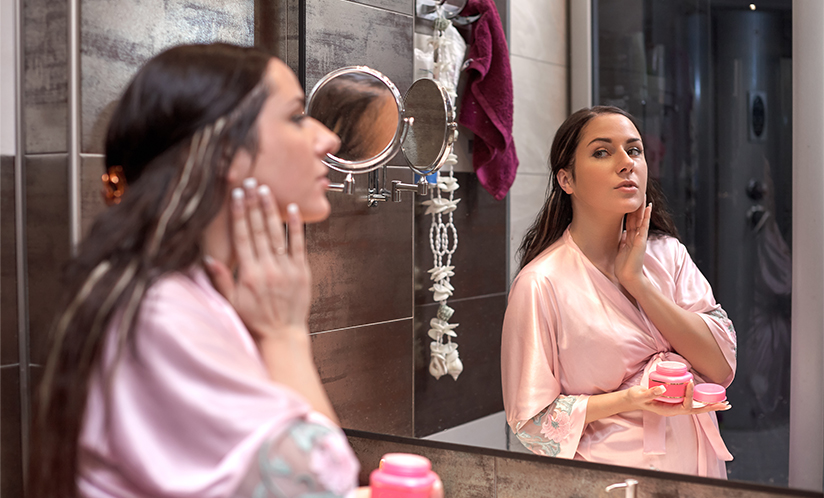Study: Common Products Put Health of Pregnant Women, Babies at Risk

Common products that women routinely apply to their skin and hair may be putting them and their babies at risk, according to a new multi-institution study published Wednesday in Environmental Health Perspectives.
The study—led by scientists from Emory University, Northeastern University, and University of Michigan—found that chemicals called phenols and parabens may increase risk of high blood pressure during pregnancy and pose a risk to the long-term health of mothers and their babies. These chemicals are commonly used as UV filters in body lotions, hand soaps, shampoos, and sunscreens, as well as to prevent the growth of bacteria and mold in makeup and other cosmetics.
“Our findings show that these chemicals found in consumer products are associated with really adverse pregnancy outcomes and that higher levels of these chemicals can lead to gestational hypertension, and ultimately to women delivering their babies early and at lower birth weight,” said senior author Stephanie Eick, PhD, an assistant professor in the departments of environmental health and epidemiology.
High blood pressure during pregnancy can lead to problems like restricted fetal growth, low birthweight, and premature birth. It can also lead to dangerous maternal health complications like preeclampsia or stroke during pregnancy, while also increasing the likelihood of other adverse outcomes like diabetes and heart disease long after pregnancy.
“But these risk factors are potentially modifiable by limiting exposure to these chemicals, which we found have a stronger effect when people are exposed to multiple types of these chemicals together,” Eick said. “This reinforces why it would be beneficial, in terms of public health, for similar chemicals to be regulated as a class instead of separately. Because in reality, we are all exposed to many things at once and we just need to try our best to limit our exposure as much as possible.”
The study—titled, “Association of Phenols, Parabens, and Their Mixture with Maternal Blood Pressure Measurements in the PROTECT Cohort”—is the largest study of its kind to date and included more than 1,000 pregnant women in northern Puerto Rico who participated as part of the PROTECT Cohort, which follows the children to investigate environmental chemical contamination and its contribution to maternal and child health.
“These everyday products that we think are safe may actually be harming us and our babies at a critical time during pregnancy,” said lead author Julia Varshavsky, PhD, an assistant professor at Northeastern’s departments of Public Health and Health Sciences and Civil and Environmental Engineering. “We found that the combined effect of phenol and paraben mixtures increased risk of hypertension during pregnancy among a vulnerable population of women in Puerto Rico who are also dealing with a disproportionate burden of exposure to other toxic chemicals, poverty, and climate change-related disasters like hurricanes and flooding.”